Protein
Proteins are large, complex molecules that play many critical roles in the body. They are made up of smaller units called amino acids, which are linked together in long chains. There are 20 different amino acids that can be combined to form a protein, and the specific sequence of amino acids determines the structure and function of each protein.
Functions of Proteins
- Structural Support: Proteins provide structural support for cells, tissues, and organs. For example, collagen is a protein that gives strength and elasticity to skin, tendons, and ligaments.
- Enzymes: Many proteins act as enzymes, which are catalysts for chemical reactions in the body. Enzymes help to speed up chemical processes and are involved in digestion, metabolism, and other essential functions.
- Transport: Some proteins, such as hemoglobin, are responsible for transporting molecules like oxygen and nutrients throughout the body.
- Immune Function: Antibodies are specialized proteins that help the immune system recognize and fight off foreign invaders like bacteria and viruses.
- Hormones: Certain proteins, such as insulin, act as hormones that regulate various bodily functions.
Sources of Protein
Proteins are found in a variety of foods, including:
- Meat and poultry
- Fish and seafood
- Eggs and dairy products
- Legumes, such as beans and lentils
- Nuts and seeds
- Soy products, like tofu and tempeh
Study Guide
Use the following questions to guide your study of proteins:
- What are proteins made of, and how are they structured?
- What are the main functions of proteins in the body?
- Give examples of proteins that provide structural support, act as enzymes, and have other specialized functions.
- Where can you find sources of protein in a typical diet?
- How does the body use protein for energy and repair?
Understanding the role of proteins in the body is essential for maintaining overall health and well-being. By studying the structure, functions, and sources of protein, you can gain a deeper appreciation for the importance of this macronutrient.
.◂Science Worksheets and Study Guides Second Grade. The sun and earth
Study Guide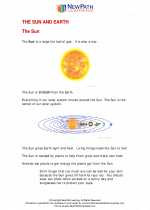 The sun and earth
The sun and earth  Activity Lesson
Activity Lesson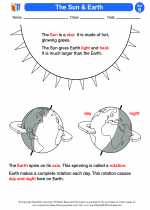 The Sun & Earth
The Sun & Earth  Worksheet/Answer key
Worksheet/Answer key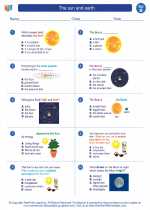 The sun and earth
The sun and earth  Worksheet/Answer key
Worksheet/Answer key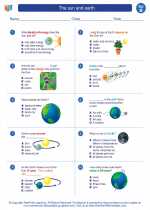 The sun and earth
The sun and earth  Worksheet/Answer key
Worksheet/Answer key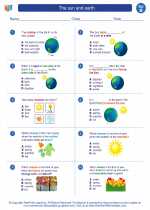 The sun and earth
The sun and earth  Worksheet/Answer key
Worksheet/Answer key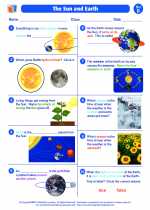 The Sun and Earth
The Sun and Earth  Vocabulary/Answer key
Vocabulary/Answer key The sun and earth
The sun and earth 

 Activity Lesson
Activity Lesson
 Worksheet/Answer key
Worksheet/Answer key
 Worksheet/Answer key
Worksheet/Answer key
 Worksheet/Answer key
Worksheet/Answer key
 Worksheet/Answer key
Worksheet/Answer key
 Vocabulary/Answer key
Vocabulary/Answer key

The resources above cover the following skills:
Concepts of Earth Science: A student should understand and be able to apply the concepts, processes, theories, models, evidence, and systems of earth and space sciences. A student who meets the content standard should:
Develop an understanding of the cyclical changes controlled by energy from the sun and by Earth's position and motion in our solar system.